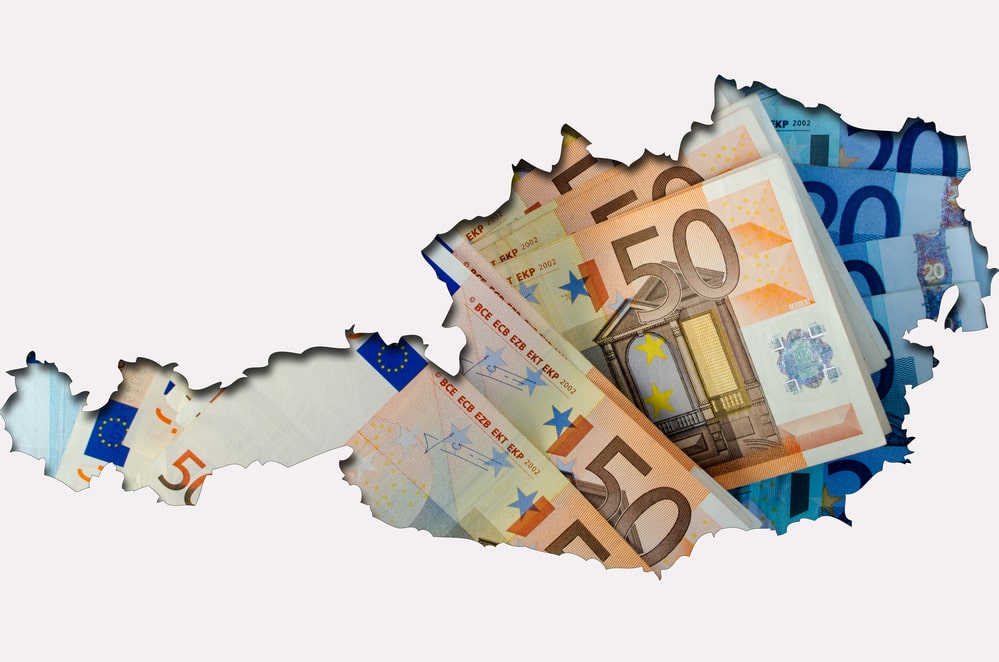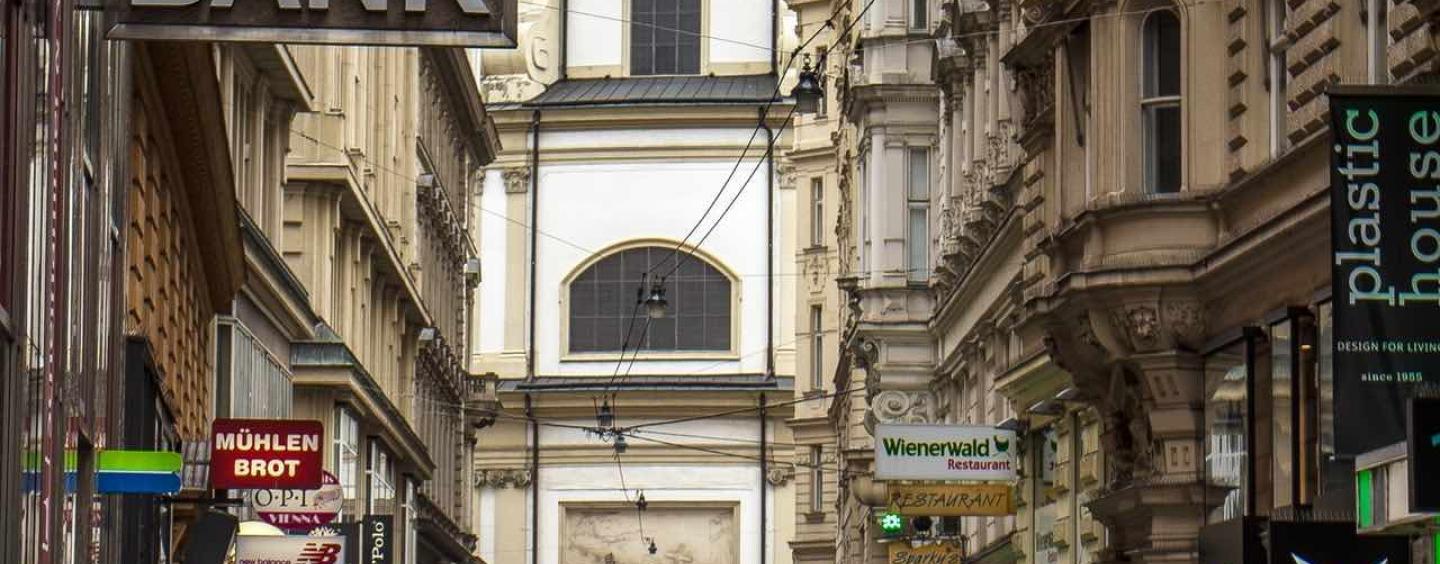How to open a bank account in Austria
There’s a lot to admire and like about Austria. If you’re a nature lover, you’ll be surrounded by pristine, dramatic landscapes, green valleys, crystal clear rivers and mountains. If you’re more of a city-dweller, Austria has some of the most beautiful towns to offer - old, picturesque architecture, well-preserved squares, visible glory of the former empire, and an abundance of cultural life, starting with the world-renown opera and classical music, to some of the best museums in Europe, to edge-cutting technology and science institutes and events. Not to forget, Austria’s higher education is world-renowned.

Austria’s capital city, Vienna, consequently lands on top of the list of the best places to live in in the world. It is famous for great public transportation, cleanness, affordability, a well-balanced mix of the welfare state and entrepreneurial spirit, as well as superb location, pretty much right at the center of Europe, with easy access to most of the continent.
For all these and many more reasons, Austria is one of the top destination choices for students, professionals, artists, scientists, workers, and retirees from a wide range of countries. It’s surprising to see how multicultural and diverse this small country has become because of a steady influx of workforce over the past decades.
If you are thinking of moving to Austria, opening a bank account will certainly be one of your priorities. We will show you how to do it.
Documents needed to open a bank account in Austria
It is easy to open a bank account in Austria. Here is what you need:
- Identity proof, such as your passport
- Proof of address, for example Residency Registration Form or utility bills that contain your address
- Proof of employment/ proof of student status for international students
Although English is a widely-spoken language in Austria, in banks and administration it is sometimes difficult to find staff that speaks it fluently. Before your visit in any of the branches, make sure that there’s an English speaking officer, or bring a German-speaking friend with you.
Besides that, the process is easy as long as you have all the necessary documentation. If you miss any of the papers, call the bank first and see how can you deal with it. Most of the phone client services have English speaking staff.
Can I open a bank account in Austria as a non-resident?
It is possible to open an account in Austria as a non-resident, and many banks now offer international accounts (Austria is careful with allowing foreigners to open accounts here), but in many cases, it will require a visit in person, sometimes with a specialized branch of the bank that deals exclusively with foreign customers. It’s best to call the bank you prefer and check what documents are needed, and then schedule a visit.
Best banks in Austria
Among the largest banks in Austria are Bank Austria, Erste Group Bank and Raiffeisen Zentralbank. You can count on their extensive branch and ATM networks and experience dealing with clients from abroad. They have English speaking staff and phone services, as well as online banking available in multiple languages.

There are many international banks present across the country, including giants such as Deutsche Bank, Citi or ING - and these may be a good solution if you already have an account with one of these banks in the country of your residence, or want to open one without having to travel to Austria just yet, by using their correspondent relations. Check with your local bank to see if this is a possibility.
The biggest banks in Austria are:
- Bank Austria (UniCredit): with 300 locations and a wide selection of account types, Bank Austria has 24/7 customer support lines, mobile and online banking, low fees and options for debit and credit cards. Check out their online-only account which could be an option if you rarely visit a branch. It is also the cheapest account on the bank’s list. Once you’re a client, you can use their service to change the account type in the future. There is a selection for all kinds of needs - students, young people, regular current accounts. They offer special insurance for your online transactions - worthwhile exploring if you tend to pay for goods and services online.
- Erste Bank / Sparkasse: is the biggest player on the Austrian market and one of the oldest in the country. It has over 16 million clients globally and more than 2700 branches in 7 countries. Aside from the regular offer, such as savings, current and student accounts, they also have special options for parents on maternity/paternity leave. It is possible to open your account online and in English. You can also apply for their special Mastercard Debit card, suitable for all kinds of online and digital payments, with lower fees and a wider range of partners.
- Raiffeisen Zentralbank boasts 475 branches and a wide-reaching ATM network, and is the second bank in Austria in terms of assets, with over 16.5 clients globally. With Raiffeisen, you can open either a salary, student, youth, or family accounts. What’s interesting is their commitment to sustainability. On their main page, they stress that they only invest in ecological enterprises. And their student account comes with discounts in clubs and all of them have options for debit cards. The caveat? Their service is not available in English.
- BAWAG P.S.K. belongs to the top four banks in Austria. You can find branches belonging to its group in Austria, Germany, France, United Kingdom, and the United States. Their services span retail, small business, personal and corporate offers with savings, payment, lending, leasing, investment, building society and insurance products and services. You can open an account with them online, in German language.
For pretty much any of these accounts, you will be charged every quarter a maintenance fee that ranges between 2 and 30 euros. As always, it’s best to check various prices and check the ATM cash withdrawal charges, since these can vary dramatically.
The virtual bank account alternative
It is expensive to send money outside Europe from Austria
Within the EU, transferring money is either free or you are only charged a nominal fee. However, if you need to send it to any country outside of Europe, these charges will become very high. The reason for that is that while executing international payments, banks use older systems (SWIFT) which not only incur a fee, but also a currency exchange, often way above the mid market rate. Some banks charge rates ten times higher than the mid-market rate to convert euros into other currencies. For example, if you want to transfer 10 thousand eur to India, your recipient will end up with around 9000 worth of euros.
The virtual bank account with B2B Pay is a good alternative because of the flat fee of 1% for international transfers, also outside of Europe. It means that in the case of above example, instead of 1000 euros for a transfer, you pay only 100 eur. As part of the package, you get your own European IBAN, just like a normal account, and you can now send and receive money from and to many countries inside the SEPA system for free, or for a very low fee. Our transfers are twice as fast as it would take the traditional bank to send your money overseas. In some regions, we are able to deliver your money in hours. If you want to try an account to transfer money abroad, try B2B Pay.
If you're interested in registering a company in Austria read our article here.
Page content
About the author

Disclaimer
This publication is provided for general information purposes and does not constitute legal, tax, or other professional advice from B2B Trade Payment Services AB or its affiliates, and it is not intended as a substitute for obtaining advice from a financial advisor or any other professional.
How to open a bank account in Europe
We have comprehensive guides on opening bank accounts across multiple European countries. These resources also explain how a virtual bank account with Narvi Payments can be a smarter alternative for international transfers, offering better exchange rates and greater convenience.
-
 How to open a bank account in Andorra
How to open a bank account in Andorra -
 How to open a bank account in Austria
How to open a bank account in Austria -
 How to open a bank account in Bulgaria
How to open a bank account in Bulgaria -
 How to open a bank account in Croatia
How to open a bank account in Croatia -
 How to open a bank account in Czech Republic
How to open a bank account in Czech Republic -
 How to open a bank account in Cyprus
How to open a bank account in Cyprus -
 How to open a bank account in Denmark
How to open a bank account in Denmark -
 How to open a bank account in Estonia
How to open a bank account in Estonia -
 How to open a bank account in Finland
How to open a bank account in Finland -
 How to open a bank account in France
How to open a bank account in France -
 How to open a bank account in Germany
How to open a bank account in Germany -
 How to open a bank account in Greece
How to open a bank account in Greece -
 How to open a bank account in Hungary
How to open a bank account in Hungary -
 How to open a bank account in Ireland
How to open a bank account in Ireland -
 How to open a bank account in Italy
How to open a bank account in Italy -
 How to open a bank account in Latvia
How to open a bank account in Latvia -
 How to open a bank account in Liechtenstein
How to open a bank account in Liechtenstein
-
 How to open a bank account in Lithuania
How to open a bank account in Lithuania -
 How to open a bank account in Luxembourg
How to open a bank account in Luxembourg -
 How to open a bank account in Malta
How to open a bank account in Malta -
 How to open a bank account in Monaco
How to open a bank account in Monaco -
 How to open a bank account in the Netherlands
How to open a bank account in the Netherlands -
 How to open a bank account in Norway
How to open a bank account in Norway -
 How to open a bank account in Poland
How to open a bank account in Poland -
 How to open a bank account in Portugal
How to open a bank account in Portugal -
 How to open a bank account in Romania
How to open a bank account in Romania -
 How to open a bank account in San Marino
How to open a bank account in San Marino -
 How to open a bank account in Slovakia
How to open a bank account in Slovakia -
 How to open a bank account in Slovenia
How to open a bank account in Slovenia -
 How to open a bank account in Spain
How to open a bank account in Spain -
 How to open a bank account in Sweden
How to open a bank account in Sweden -
 How to open a bank account in Switzerland
How to open a bank account in Switzerland -
 How to open a bank account in the UK
How to open a bank account in the UK
